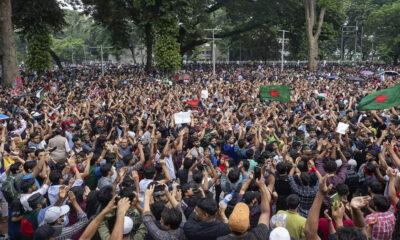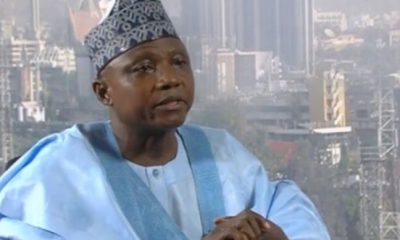International
Bangladesh army announces interim govt after PM Hasina flees

Bangladesh army announces interim govt after PM Hasina flees
Bangladesh’s Prime Minister Sheikh Hasina has resigned and fled the country following weeks of deadly demonstrations against her government.
The removal of Hasina on Monday followed weeks of deadly protests and appears to have averted the threat of further bloodshed. The focus now moves to who will control the South Asian country.
In an address to the nation, army chief General Waker-Uz-Zaman announced that an interim government will now run Bangladesh and called for calm.
Hasina, who ruled the country for close to two decades, boarded a military helicopter on Monday, an aide told Al Jazeera, as huge crowds ignored a national curfew to storm her palace in Dhaka.
Media reports in India say an aircraft carrying Hasina landed at Hindon Air Base near New Delhi. She was on board a Bangladesh Air Force aircraft which landed at the base in Ghaziabad, India Today news channel reported.
Her resignation came after nearly 300 people died in weeks of protest that the authorities sought to crush. A night of deadly violence on Sunday killed close to 100 and a curfew was called.
On Monday, huge crowds stormed the prime minister’s palace, preventing Hasina from delivering a speech.
At least 20 more people were killed during violence in Dhaka as protesters stormed buildings, a police officer told the AFP news agency.
“We’ve got 20 bodies here,” said Bacchu Mia, a police inspector at Dhaka Medical College Hospital, without giving details of their deaths, although witnesses and other police officers reported mobs launching revenge attacks on rival groups.
Despite the violence, by early afternoon, the mood on the streets had turned to one of celebration after the news of the premier’s departure spread.
Jubilant crowds waved flags, some dancing on top of a tank in the streets, before thousands broke through the gates of Hasina’s official residence.
READ ALSO:
- Widow, children, grandchildren found unconscious in Benue after pap meal
- Google’s online search monopoly is illegal, US judge rules
- Just in: National grid suffers partial collapse, power supply drops by 60.15%
Bangladesh’s Channel 24 broadcast images of crowds running into the compound, waving to the camera as they celebrated, looting furniture and books while others relaxed on beds.
Wary
Al Jazeera’s Tanvir Chowdhury, reporting from Shahbagh Square – the epicentre of the student protests that began last month – said he has “never witnessed something like this” in the capital.
“Everybody is celebrating, not just students – people from all walks of life. They said this had to happen, there was nothing we could say, democracy was squeezed and now we are free,” Chowdhury said.
The message from the protesters is that whoever comes to power next “will now know that they won’t tolerate any kind of dictatorship or mismanagement and that the students will decide”, he added.
Bangladesh suffered many years of military rule in the 1970s and 80s following the war that secured its independence from Pakistan in 1971, and many are wary of the danger of a return.
Army chief Waker-Uz-Zaman was eager to try to reassure the country. He urged citizens to keep trust in the army, which, he said, would return peace to the country.
“We will also ensure that justice is served for every death and crime that occurred during the protests,” he said, calling on the public to exercise patience and cease any acts of violence and vandalism.
“We have invited representatives from all major political parties, and they have accepted our invitation and committed to collaborating with us,” the general added.
READ ALSO:
- Olympics 2024: Favour Ofili makes historic 200m final
- IgboMustGo protest: IPOB demands referendum, says Ndigbo ready to exit Nigeria
- MTN Nigeria takes control of MoMo PSB, buys out minority shareholder
The military has a “very tough job ahead,” Irene Khan, a UN special rapporteur, said.
“We are all hoping that the transition would be peaceful and that there will be accountability for all the human rights violations that have taken place,” Khan told Al Jazeera.
Protests in the country started a month ago over a controversial government job quota scheme. The government responded by shutting down universities and using the police and military to crack down on protesters.
Hasina imposed a nationwide curfew and cut off access to phones and the internet. The protests continued, and the country’s top court ruled that the highly contested quotas should be scaled back from 30 percent to 5 percent, with 3 percent for relatives of veterans.
It came to no avail. The demonstration movement had morphed into an unprecedented and nationwide uprising demanding the resignation of Hasina and accountability for those killed.
“Bangladesh has, of course, an enormous task ahead,” said Khan. “It is not the poster child of sustainable development any more. The previous government had driven this country into despair, and there would be a lot of hard work to do to build it up but most of all I think it’s extremely important that the army respect human rights.”
Crisis Group’s expert on Bangladesh, Senior Consultant Thomas Kean, suggested to Al Jazeera that the army must now ensure security and stability, in order to allow the interim government the chance to start the task of rebuilding democracy.
“The current crisis presents an opportunity to put Bangladesh back on the path of genuine democracy and move beyond the hyper-partisan, winner-takes-all electoral dynamics that have caused so much damage over the past three decades,” he said.
Bangladesh army announces interim govt after PM Hasina flees
International
Mystery as Iranian Warship Sinks off Sri Lanka, Over 100 Feared Missing
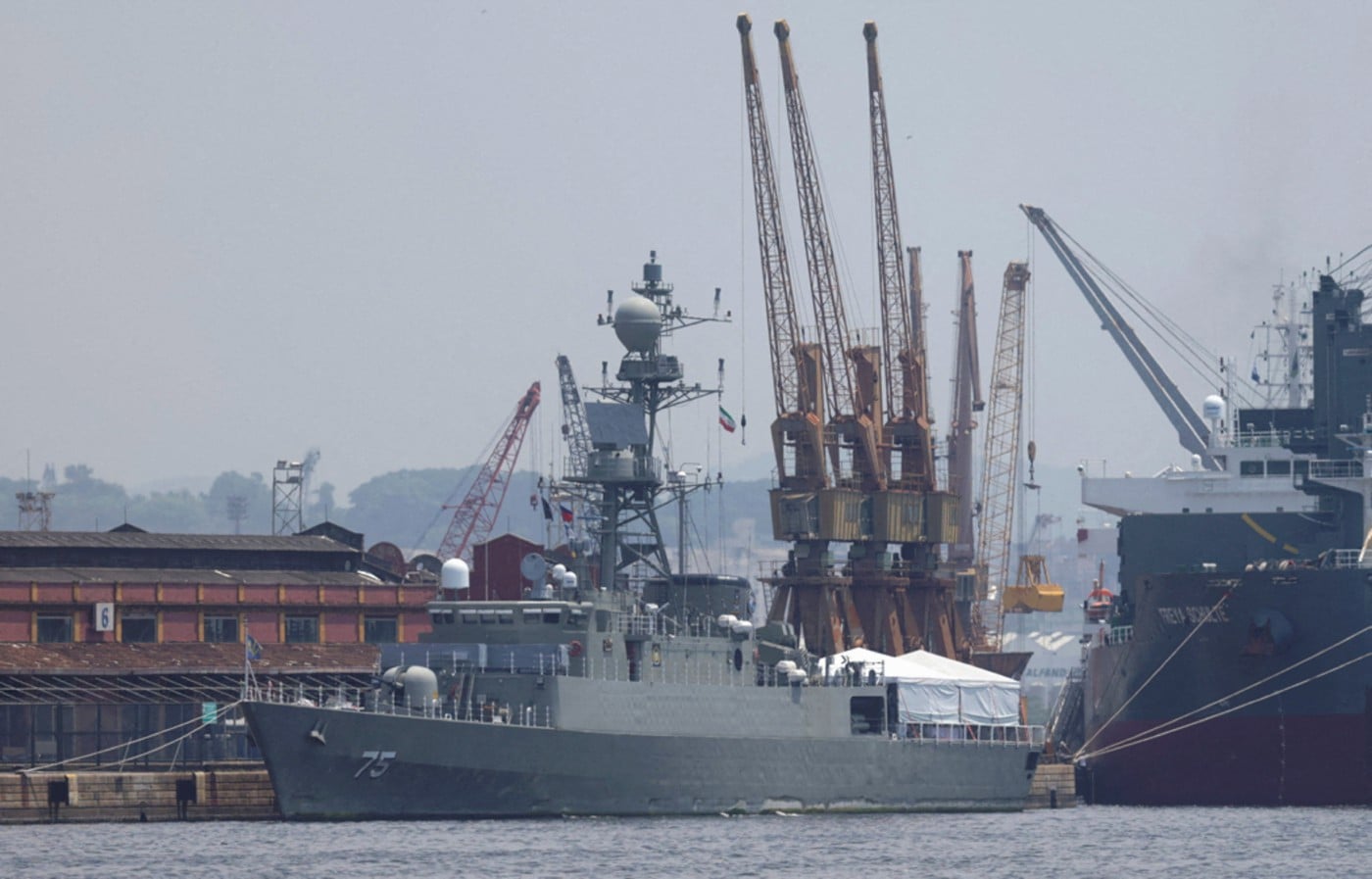
Mystery as Iranian Warship Sinks off Sri Lanka, Over 100 Feared Missing
An Iranian warship has sunk off the coast of Sri Lanka, triggering a major search and rescue operation after authorities confirmed that 32 people were rescued while several bodies were recovered from the sea.
Sri Lanka’s Foreign Minister, Vijitha Herath, told parliament on Wednesday that the vessel, identified as IRIS Dena, went down in waters off the island nation.
Initial reports from sources within the Sri Lanka Navy and the defence ministry suggested the ship may have been attacked by a submarine, with at least 101 people unaccounted for following the incident in the Indian Ocean.
However, a navy spokesman dismissed the claim that over 100 people were missing, describing the figure as inaccurate. He also rejected speculation about the cause of the sinking, saying investigations were still ongoing.
The rescued sailors, who sustained injuries during the incident, are receiving treatment at a state-run hospital in the southern port city of Galle.
According to naval authorities, a distress call was received from the Iranian vessel, prompting a swift joint rescue effort by the navy and the Sri Lanka Air Force. Search operations were immediately launched in the affected area of the Indian Ocean.
While defence sources hinted at a possible underwater attack, officials stressed that the exact circumstances surrounding the sinking remain unclear, and no group or country has been identified as responsible.
The incident has raised fresh security concerns in the strategically sensitive Indian Ocean region, as authorities continue efforts to account for all crew members and determine what led to the vessel’s sudden loss.
International
US Military Says It Has Struck Nearly 2,000 Targets in Iran as War Escalates

US Military Says It Has Struck Nearly 2,000 Targets in Iran as War Escalates
The United States military says it has struck nearly 2,000 targets inside Iran as part of a large‑scale military campaign launched over the past week, marking one of the most intense offensives in the region in decades. The operation — coordinated with Israel — has rapidly expanded the conflict, drawing in multiple fronts and prompting sharp responses from Tehran.
According to Admiral Brad Cooper, head of United States Central Command (CENTCOM), American forces have carried out sustained day‑and‑night strikes using more than 2,000 munitions against Iranian military and strategic infrastructure. “We’ve already struck nearly 2,000 targets with more than 2,000 munitions,” Cooper said in an operational update, adding that the US has severely degraded Iran’s air defenses and destroyed hundreds of ballistic missiles, launchers, and drones.
The strikes form part of what CENTCOM officials are calling an unprecedented operation, described by some military analysts as the largest build‑up of firepower in the Middle East in a generation. Cooper said the US campaign has targeted a wide range of military assets, including missile batteries and launchers, air defence systems and radar sites, naval vessels — including 17 Iranian ships and a submarine — command and control centres, and drone and UAV facilities. Cooper also asserted that the Iranian navy has been effectively neutralised in key waterways. “Today, there is not a single Iranian ship underway in the Arabian Gulf, Strait of Hormuz or Gulf of Oman,” he said, highlighting the sweeping impacts of the strikes.
READ ALSO:
- FG Bans Roadblocks, Cash Tax Collection Nationwide
- Trade Row Looms as Trump Threatens Spain After Refusal to Support Iran Strikes
- UK, France Deploy Warships, Anti‑Drone Helicopters to Cyprus After RAF Akrotiri Strike
The Pentagon has compared the pace and scale of the initial strikes to the “shock and awe” campaign during the 2003 Iraq invasion, with the number of targets hit in the first 24 hours described as nearly double that earlier offensive. US officials say the current campaign — sometimes referred to as Operation Epic Fury — continues around the clock as forces aim to eliminate Tehran’s ability to project power.
Iran has responded vigorously, launching hundreds of ballistic missiles and thousands of drones at US bases and allied positions across the Gulf region, including strikes against American facilities in Bahrain, Iraq, Kuwait, Qatar, and Saudi Arabia. The volatility has sparked fears of a wider regional conflict, with both sides trading increasingly severe attacks. Tehran’s Revolutionary Guard has made conflicting claims about control of strategic waterways like the Strait of Hormuz, suggesting that Iran maintains dominance even as US and allied forces press their assault. Independent verification of these claims remains difficult amid the fog of war.
Beyond military dynamics, the conflict has disrupted global energy markets and raised concerns about the safety of key shipping lanes. President Donald Trump has indicated that the US Navy may escort oil tankers through the Strait of Hormuz if necessary, aiming to keep energy flows stable and reassure global markets. The massive number of targets hit reflects the breadth of the US strategy, which combines air, naval, missile and cyber capabilities to degrade Iran’s defence posture. CENTCOM has deployed tens of thousands of troops, hundreds of aircraft, carriers, and bombers to sustain the pressure.
Humanitarian organisations estimate that hundreds of Iranian civilians have been killed, and thousands more injured, as the conflict continues to escalate, drawing international concern over civilian harm and the legal basis for such large‑scale offensive operations. As the military campaign unfolds, analysts warn that the conflict has the potential to widen, involving more actors across the Middle East and prompting further diplomatic and economic fallout.
US Military Says It Has Struck Nearly 2,000 Targets in Iran as War Escalates
International
Trade Row Looms as Trump Threatens Spain After Refusal to Support Iran Strikes

Trade Row Looms as Trump Threatens Spain After Refusal to Support Iran Strikes
US President Donald Trump has threatened to halt all trade with Spain after Madrid refused to allow US military aircraft to use Spanish bases for operations linked to recent strikes on Iran, escalating tensions with a key NATO ally. The warning came during a White House meeting with German Chancellor Friedrich Merz, where Trump also criticised the United Kingdom for what he described as limited cooperation.
Spain’s leftist administration under Prime Minister Pedro Sánchez maintained that US forces could only use bases in Rota and Morón for operations consistent with the United Nations Charter, noting that the bases were not involved in recent strikes. Trump dismissed this position, calling Spain “terrible” and asserting that he had directed Treasury Secretary Scott Bessent to suspend all economic dealings with Madrid.
Trump also targeted Spain for not meeting his preferred NATO defence spending target of 5% of GDP, arguing that the US bears too much of the alliance’s costs. “So we’re going to cut off all trade with Spain. We don’t want anything to do with Spain,” Trump said, claiming he could terminate business ties immediately.
READ ALSO:
- UK, France Deploy Warships, Anti‑Drone Helicopters to Cyprus After RAF Akrotiri Strike
- NRC Expands Abuja–Kaduna Train Service with Additional Trips
- Dangote Expands into Steel, Power, Ports to Drive Africa’s Industrial Growth
Legal experts have questioned the feasibility of Trump’s threat, noting that trade agreements with Spain are negotiated through the European Union, limiting any unilateral action. Madrid responded by describing its US trade relationship as mutually beneficial, emphasizing adherence to international law, EU agreements, and the ability to mitigate potential economic impacts while diversifying supply chains.
Sánchez has consistently called for diplomatic solutions to the Iran conflict, arguing that opposing repressive regimes does not justify military escalation. Spain has also been critical of Israel’s actions in Gaza, accusing its government of genocide — a claim Israel denies.
Trump’s criticism of the United Kingdom focused on restrictions regarding the use of UK bases in Cyprus and Diego Garcia, which are limited to “specific and defensive” operations. He also expressed frustration over the UK’s agreement to return the Chagos Islands to Mauritius, home to the Diego Garcia base.
The dispute highlights mounting strains in transatlantic relations, exposing disagreements over military strategy, defence spending, and the conduct of operations in the Middle East. Analysts warn that such tensions could complicate NATO coordination and EU‑US relations if left unresolved.
Trade Row Looms as Trump Threatens Spain After Refusal to Support Iran Strikes
-

 International2 days ago
International2 days agoIran Retaliates: Gulf States Allied With US Hit by Missiles, Drones
-

 International2 days ago
International2 days agoSaudi Arabia Denies Lobbying US to Strike Iran as Gulf States Respond to Escalation
-

 International2 days ago
International2 days agoSeveral U.S. Warplanes Crash in Kuwait Amid Ongoing Iranian Strikes
-

 metro2 days ago
metro2 days agoDaddy Freeze Warns Couples Over 40: ‘Avoid Moving Abroad, Especially US, UK’
-

 International2 days ago
International2 days agoIsraeli Airstrikes Kill 31 in Lebanon as Hezbollah Loses Senior Figures
-
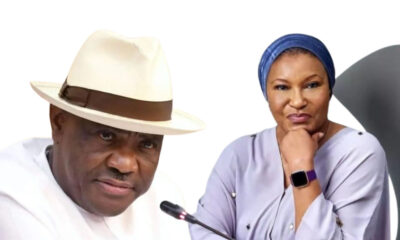
 Politics2 days ago
Politics2 days agoWike Blasts Kingibe Over FCT Council Election Remarks
-
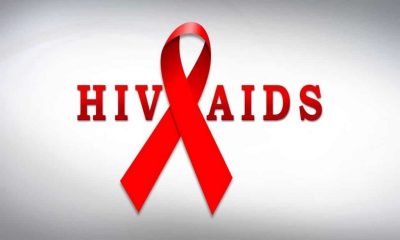
 Health2 days ago
Health2 days agoNigeria to Receive Breakthrough HIV Prevention Drug This Month – NACA
-

 International2 days ago
International2 days agoAustin Bar Shooting Kills 3, FBI Investigates Possible Terrorism Link



